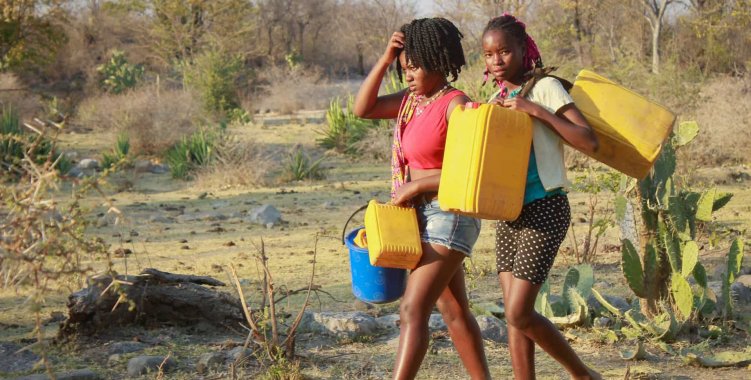The "prolonged drought" in southern Angola, they said, results from the lack of rainfall in most localities, where the inhabitants see their subsistence agriculture compromised, with consequent "aggravation of hunger".
"It is not only in Gambos, Huila province, practically the entire southern region is affected. Some regions more and others less, but here where we are [Gambos, one of the most affected municipalities] the last great rain was on December 25, 2020, since then we have never had serious rain," said Father Pio Wakussanga, speaking to Lusa.
According to the Catholic priest and parish priest of the parish of Our Lady of Fatima of Chiange, Gambos municipal seat, the lack of rains and the consequent drought is also registered in several localities of Cunene province, expressing, therefore, "concern".
The transhumance (process of searching for pasture and water) of cattle and goats in Gambos region has been the alternative of many shepherds to ensure the survival of their herds, which find in the tree branches an alternative of pasture to the lack of grass.
"Many shepherds are digging occasional wells in order to water their cattle, the situation is very complicated and most families are already without food," stressed Father Pio, a human rights defender in the south of the country.
The also pastor of the parish of Santo Antonio dos Gambos and head of the NGO Construindo Comunidades recalled that he has advocated, since 2012, the creation and distribution of a basic food basket for that region, stating that "today, many families are fading away."
"Hunger is tightening. Since 2012 we have been urging the government to institutionalize a basic food basket for this region, but unfortunately until now the Gambos are not even contemplated in the Kwenda program," he stressed.
The Kwenda is a government program, under the Ministry of Social Action, Family and Promotion of Women, which aims to financially assist the most vulnerable families in the country with a monthly support of 8500 kwanzas per household.
For the also winner of the "Human Rights Defender 2018" award, given by a South African organization, the Kwenda amount, "although derisory, would end up helping a little bit the poor families in the region and they are not even contemplated."
"Every day we receive hungry mothers with children on their backs in our missions, every day we receive requests from families who are about to collapse, so the situation is bad and urgent humanitarian aid is needed," urged the priest.
The situation of drought and lack of water, due to lack of rainfall, is also seen in several locations in the municipality of Virei, Namibe province, according to Sílvia Santos, of the Fundação Fé e Cooperação (FEC), which works in the region.
According to the manager of the "Ekevelo" project, of the FEC in partnership with Caritas Angola, funded by the European Union under the FRESAN program (Strengthening Resilience and Food and Nutrition Security in Angola) and managed by the Camões Institute, the populations of Virei are with "many difficulties".
"We are working in four communities in the municipality of Virei, this year it hasn't rained yet, people are really not doing very well, because with this absence of rains the situation is worrying," she said this Tuesday in an interview with Lusa.
Silvia Santos said that the lack of rains is extensive to the central plateau (Huambo province), and Huila, sources of water supply of the rivers that flow into the Virei, in Namibe.
"As it is not raining upstream, the difficulties are also emerging," he said, pointing to ongoing work aimed at opening boreholes and rehabilitation of others, until March, to "try to make up for the effect of the lack of rainwater.
The goal is to try to "stimulate some fields of community crops with agricultural techniques more resilient to drought, to also try to encourage the local community to a more adapted agricultural practice and thus ensure a better level of food security," she pointed out.
The responsible for the FEC stressed that transhumance is also a daily exercise of shepherds, who travel long distances in search of the best pasture, lamenting the weak agriculture due to lack of rain.
"The scenario is not very encouraging and we are working in the sense of being able to help to remedy these effects as well," in collaboration with the municipal administration that has planned the opening of some water holes, he concluded.
The drought is also registered in the municipality of Bocoio, Benguela province, which last weekend held a debate, under the auspices of the Catholic Church, to find solutions to the problem.







